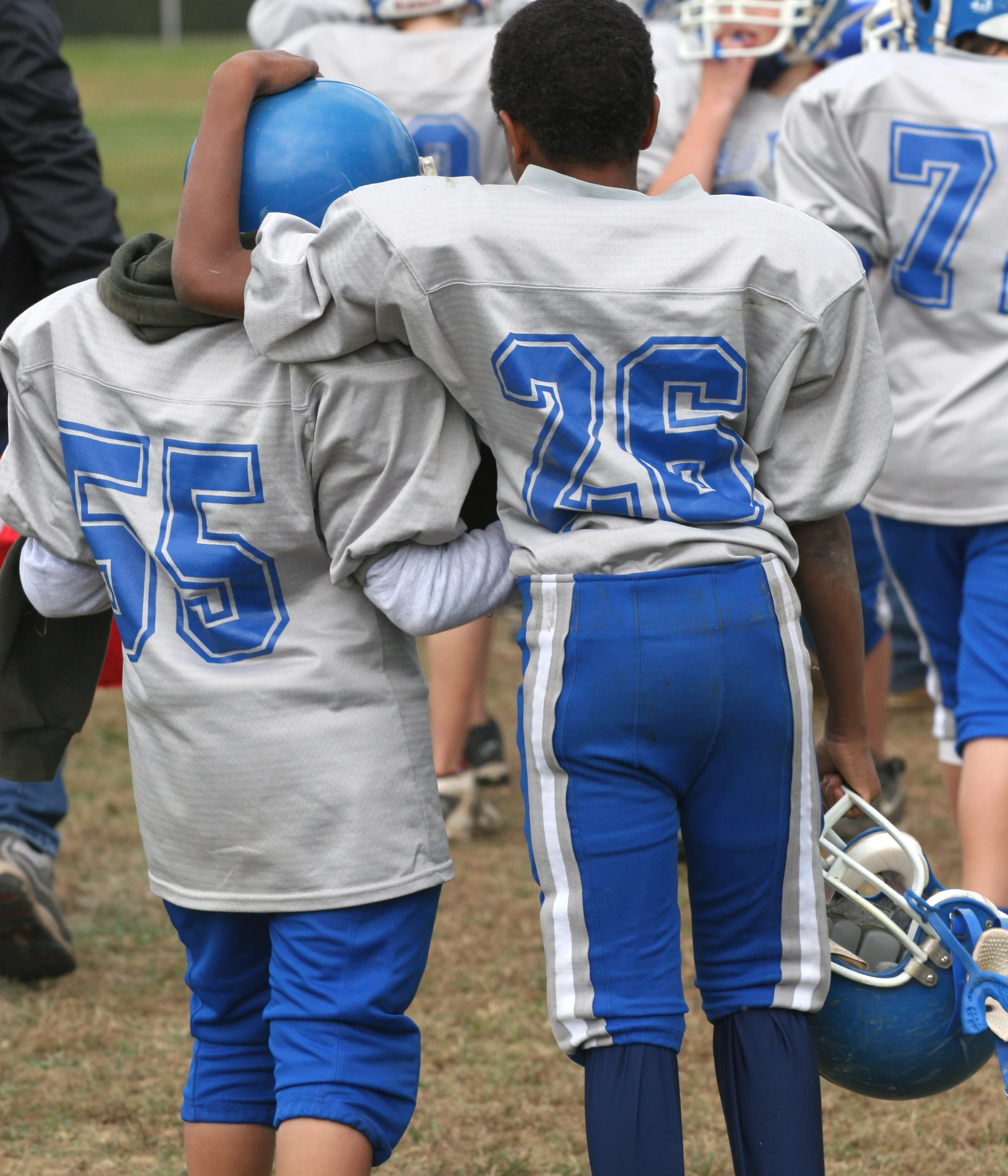
It’s likely that during a child’s adolescence, there will come a time when they arrive home excited to tell their parents about a sports program they want to join. Their parents will more than likely say yes because it will give them something to do but do you know that there are many benefits of youth sport participation?
Aside from learning a new set of skills, there are life-long benefits of youth sports! According to Aspen Institute’s Project Play, physically active children go on to become adults who are more productive at work, have a 7-8% higher annual earnings and have lower levels of depression.
Knowing the benefits of youth sports can help you structure your program in a way that encourages the well-being of your athletes. In this article, we’ll cover the psychological, social and physical benefits of youth sports.
Psychological benefits of youth sports
Improves academic potential
Many young people who pursue sports have a strong self-concept and are very goal driven. These positive qualities can carry over into the classroom.
In fact, several studies have found a link between youth sports and academic success. One study found that a large percentage of athletes reported achieving an “A” average in school. Student athletes were far more likely to have strong educational and career goals as well. Most aspire to graduate from both a four-year college and a graduate or professional program.
Improves mental health
Engaging in youth sports promotes physical fitness for adolescents which can have a positive effect on their mental health. Regular exercise promotes the release of endorphins which are natural mood enhancers. They reduce anxiety, stress and depression.
Having children participate in youth sports allows them to experience friendly competition. Being competitive with other teams or teammates can serve as a healthy outlet for stress and frustration. Many young people can experience bad days so having practices and games to participate in can reduce tension and allow them to channel their energy in a positive way.

Improves emotional regulation
Not every game will result in a win. Children should be presented with challenges and obstacles so that they can build their emotional control and resilience. Youth sports offers a way for children to manage their emotions, cope with failure, handle pressure and lose with grace.
By being able to experience different emotions and work through various outcomes, children are primed to become emotionally stable adults. Because of this, many youth sports programs form their mission statement around creating contributing members of society.
By allowing youth athletes to regulate their emotions, you’ll also teach them about sportsmanship and working with others. These skills will benefit them for years to come.
Social benefits of youth sports
Helps kids make new friends
For many kids, playing sports is a great way to make new friends. Participating on a team can give children a chance to get to know others in their neighborhood, school, or local area. Often these friendships last even after the season ends. These continuing conversations allow kids to reflect on fun times spent together.
Playing in a local league helps build a stronger connection with the community. Young people will get to know adults who serve as volunteer coaches or league officials. They can build relationships with these trusted adults – who can be important role models.
And children can witness the value of volunteer service first-hand. They can understand what it means to be a positive community contributor.
Helps kids understand teamwork
The benefits of team sports participation extend beyond the field, court, or arena. Through playing sports, your children can learn to make quick decisions and work as a team. These positive qualities will serve them well in future careers.
Sometimes, young athletes face the discomfort that comes from being in the spotlight or having teammates rely upon them. And the disappointment of at least one difficult loss is inevitable.
Still, most young athletes know they have the full support of their coaches and families. They learn that they have the strength to face adversity. Tough experiences in sports can help young people build resilience that stays with them well into adulthood. Take it from Kevin Durant:
"So many people believed in me when I didn’t believe in myself. So many people doubted me and motivated me every single day to be who I am. I failed so many times and got back up. I’ve been through the toughest times with my family, but I’m still standing." - Kevin Durant
For example, one father of a young athlete remembered feeling nervous about pitching for his youth baseball team. He also knew his family would appreciate his contribution no matter the outcome. As he’s grown to face far more complex situations–both in his personal and business life–he looked back on his early pitching days. Now, he recognizes how that experience taught him that he can weather any challenges.

Helps build leadership skills
Youth sports offer opportunities for young people to develop leadership qualities. Being able to provide concise directions, work with people of different backgrounds and abilities and keep morale high are just a few of the ways that youth players can take charge.
Whether they become team captains or take on other leadership roles within their teams, they learn to inspire, motivate, and guide their peers. These experiences can build their self-confidence and nurture their leadership potential to help them become effective leaders in other areas of life.
🧠 Learn More: 4 Youth Sports Participation Trends
Physical benefits of youth sports
Keeps kids active
Today, young people face many temptations to lead a sedentary lifestyle. And far too many do fall into this trap. Technology use by kids is on the rise, while time spent outdoors is decreasing. Just one in three children participate in daily physical activity.
How can you keep young athletes from lapsing into inactivity? Encouraging parents to sign up their children up for a youth sports program can help them develop good health habits. Even one day per week of regular exercise can be beneficial.
There are many health benefits for kids who play sports such as having lower body fat, stronger muscles and bones, and increased cardiovascular fitness. They have a much lower risk of fighting obesity. And they can create a foundation for a healthy lifestyle.

Develops motor skills and coordination
Youth sports help children develop fundamental motor skills, including running, jumping, catching, throwing, and balance. These skills form the foundation for more advanced athletic abilities which will allow your child to continue to advance through athletics.
Your program should have knowledgeable coaches who understand how to work with varying levels of abilities. Along with taking classes about how to work with young athletes, all coaches should also follow your program’s background check policy to ensure overall safety.
Increases flexibility and range of motion
Many sports involve stretching and movements that promote flexibility and improve the range of motion in joints. The younger your child starts in an athletic program, the easier it will be for their bodies to adapt to these movements.
Regular stretching should be a part of your program as it helps maintain or enhance flexibility which contributes to their overall physical health. You can communicate what a standard practice will look like to parents so that they feel informed and involved.
🧠 Learn More: Is Youth Sports Specialization Good for Athletes?
BONUS: Builds a foundation for lifelong health
Participating in sports can help young people develop healthy habits that last a lifetime. Often, young children may experiment with several sports, but focus or one or a few when older. Those that continue with sports recognize that regular practice can help them gain new skills. And more intense training can bring higher levels of performance. This motivation for self-improvement often persists after organized sports participation ends.
Researchers have found that young athletes grow up into active adults. In one long-term study, those who took part in sports between the ages of nine to 18 were five to six times more likely to be active into adulthood. In some cases, participating in youth sports just once a week led to a much higher probability of being active adults.
Without question, regular physical activity early in life can lead to a healthier future.
Final thoughts
Even though there are many benefits to participating in youth sports, there is still a large percentage of children who are not involved in their communities' athletic programs. One way to increase the amount of players in your program is to have an updated website. Parents will need a website where they can read important information, sign up their child and receive updates.
Jersey Watch is a youth sports management platform that helps you build a website, provide ways for parents to register and pay online, run background checks on volunteers and send out important updates directly to parents.